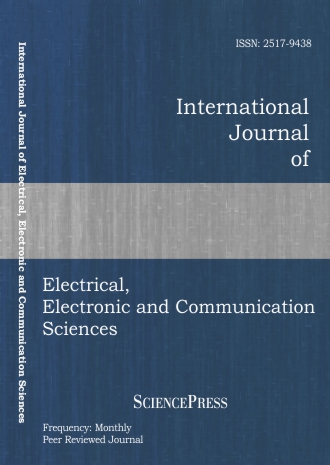
Scholarly
Volume:14, Issue: 7, 2020 Page No: 208 - 211
International Journal of Electrical, Electronic and Communication Sciences
ISSN: 2517-9438
59 Downloads
Achieving Shear Wave Elastography by a Three-element Probe for Wearable Human-machine Interface
Shear elastic modulus of skeletal muscles can beobtained by shear wave elastography (SWE) and has been
linearly related to muscle force. However, SWE is currently
implemented using array probes. Price and volumes of these probes
and their driving equipment prevent SWE from being used in
wearable human-machine interfaces (HMI). Moreover, beamforming
processing for array probes reduces the real-time performance. To
achieve SWE by wearable HMIs, a customized three-element probe
is adopted in this work, with one element for acoustic radiation
force generation and the others for shear wave tracking. In-phase
quadrature demodulation and 2D autocorrelation are adopted to
estimate velocities of tissues on the sound beams of the latter two
elements. Shear wave speeds are calculated by phase shift between
the tissue velocities. Three agar phantoms with different elasticities
were made by changing the weights of agar. Values of the shear
elastic modulus of the phantoms were measured as 8.98, 23.06 and
36.74 kPa at a depth of 7.5 mm respectively. This work verifies the
feasibility of measuring shear elastic modulus by wearable devices.
References:
[1] S. F. Brennan, “In vivo fascicle length measurements via b-mode